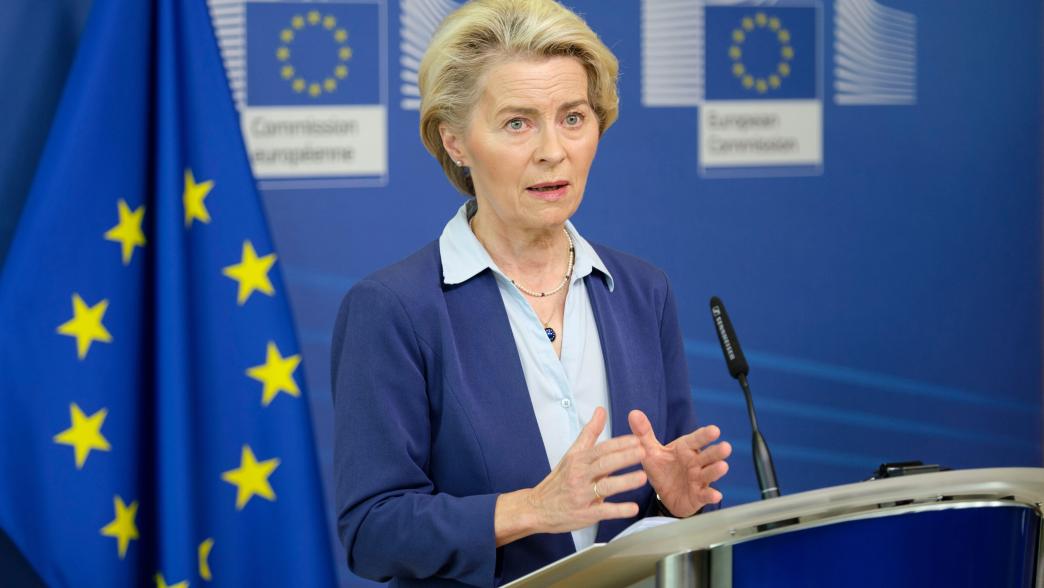A distracted EU may not have much time to reset relations with the UK
The European parliament elections aren't likely to lead to a willingness to renegotiate the Brexit deal.

Jill Rutter looks at what the European parliament election result might mean for the UK
In 2019, the UK was obliged to take part in European parliament elections even though it was in Article 50 limbo and trying to end its half century of EU membership. That election was used by voters to send big messages to the UK parties: the big winners were the Brexit Party and the Lib Dems as voters showed their exasperation at the then Brexit stalemate. The Conservatives plummeted to single figure levels that make today’s polling levels look positively rosy.
The latest set of elections for the first European parliament elections were the first without the UK as a member state. We can now only speculate how the UK might have voted – traditionally major parties were given a kicking, providing platforms (and funding) for the Greens and UKIP over time, with Nigel Farage rejected seven times in Westminster elections but serving as an MEP for both UKIP and the Brexit party – but we will still feel the impact of these results on our own politics. These elections always flew under the radar when the UK participated, and now they have an even lower profile in the UK. However, they will matter to a future UK government.
Ursula von der Leyen is (likely) to stay as Commission president
The first outcome is that the current Commission president, Ursula von der Leyen, is likely to stay on. She was the “spitzenkandidat” (lead candidate) of the centre right European People’s Party group – and they emerged with slightly more seats in this Parliament than the last. The Socialists and Liberal groupings have said they will support her. Von der Leyen is a known quantity for the UK and has established an effective working relationship with Rishi Sunak – which was crystallised in the Windsor Framework.
It is less clear what the new carve-up of Commission posts will look like – and Commission members have to be approved by the European parliament. It will be interesting to see if the bigger right wing, more Eurosceptic bloc manage to flex their muscles on any potential appointees.
The rejection of the Greens may have implications for EU climate policy
In 2019 the Greens did well in the European parliament elections. This time round, they are among the biggest losers (alongside President Macron’s 'renaissance' grouping). There have already been signs of a “greenlash” within the EU – particularly from farmers, which led the last Commission to exclude them from their ambitious net zero policies. But it will be interesting whether the shift within the parliament – there are now fewer Greens and more rightwingers – will lead to a more general downgrade of EU climate ambition and more concern about the impact on household budgets. This will also reinforce the message to national government, that public support for green policy cannot be taken for granted.
If the results presage a dampening of legislative activism more generally then it would reduce the speed at which the EU is diverging away from the UK. This may make it easier for UK businesses to stay serving the EU market and reduce repeat frictions in Stormont as MLAs consider whether or not to accept the changes needed to stay aligned with the single market.
The results have undermined governments in the EU’s big two
The most dramatic reaction to the results came when President Macron announced an immediate dissolution of the French National Assembly and new elections, which will take place on 30 June and 7 July. He stays in post until the end of his second term (and cannot stand again). This move seems to have sparked unity on the left and chaos on the right – and it is yet far from clear what sort of government will emerge at the end.
He is not the only leader who will be under pressure. Germany’s governing coalition suffered a slap in the face which is further exposing divisions. Thus far Chancellor Scholz has resisted calls for new federal elections – but he faces a big internal wrangle over the upcoming budget. Suffice to say that there is a big risk that both Macron and Scholz serves out their remaining time in government as a pair of limping ducks.
The incumbent leader who has emerged with authority enhanced is Giorgia Meloni, Italy’s prime minister. Rishi Sunak had built a good relationship with her – but she is hardly a kindred spirit of Keir Starmer. She and other more Eurosceptic leaders may have been more willing to agree bilateral deals with the UK to spike Commission authority – but a Starmer government would be less likely to ask for them.
Bandwidth within Europe for resetting the trade relationship with the UK will be limited
If a Labour government is returned it has said it will look to improve the trade deal with Europe – without rejoining the single market, customs union or returning to free movement of workers. It is possible that a less Brexit-sceptic European parliament could look more favourably on improving the UK’s deal – but for most of the EU Brexit is “done” and they have much bigger problems to deal with. Huge efforts to make life much easier for UK businesses in Europe look unlikely to be high on anyone’s agenda.
- Topic
- Brexit
- Keywords
- Foreign affairs Trade Economy
- Political party
- Labour Conservative
- Position
- Prime minister
- Administration
- Johnson government May government Sunak government
- Public figures
- Boris Johnson Rishi Sunak Keir Starmer
- Publisher
- Institute for Government